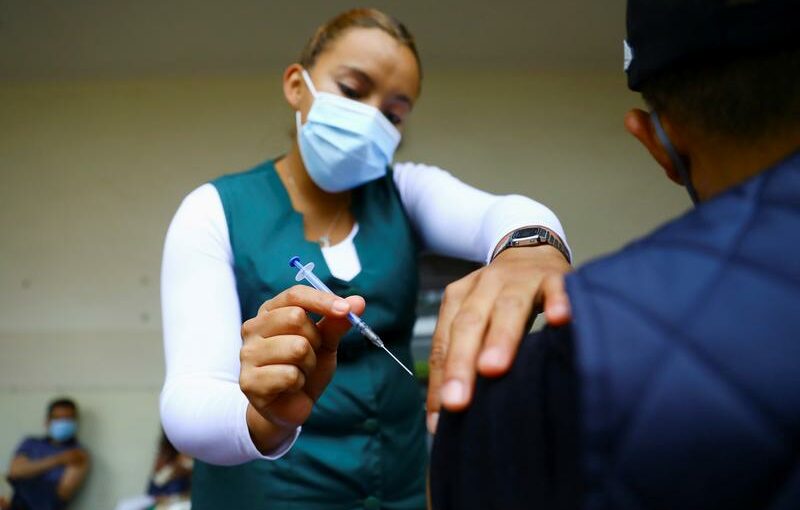(Reuters) – Latin America is poised to receive millions of U.S.-made COVID-19 shots in the coming weeks as the United States emerges as a top exporter of vaccines against the novel coronavirus, according to two people familiar with the matter.
The United States is considering prioritizing countries within its own hemisphere for the 80 million domestically-made vaccine doses it has pledged to send abroad, one person familiar with the matter said.
Meanwhile, Pfizer Inc has begun exporting millions of its U.S.-made shots largely to countries in Central and South America, a second person familiar with the matter said.
Many Latin American countries have a dire need for COVID-19 vaccines as they combat outbreaks. Brazil has been one of the world’s hardest hit countries by the pandemic, reporting a total of more than 15 million cases and 400,000 deaths as of this week.
Pfizer, which developed its vaccine with German partner BioNTech SE, is producing around 10 million shots in the United States each week for export as its domestic output pulls ahead of U.S. demand for vaccines, the second person said.
The drugmaker is making shipments from its Michigan facility to U.S. neighbors Canada and Mexico, as well as nearly 10 other Latin American countries, the person said.
Recent recipients of Pfizer’s U.S.-made vaccine doses include Brazil, Costa Rica, Ecuador, Peru, and Uruguay, the person added.
The White House is still deliberating how to direct the shots it promised to send abroad and President Joe Biden has not yet made a decision. But giving preference to countries that share a hemisphere with the United States is one argument under consideration because it would be in the American people’s interest to do so, the first person said.
The criteria for sharing the vaccine would be epidemiological and include geographic flexibility so that adjustments could be made as the pandemic shifts, another person familiar with the matter said.
VACCINE DIPLOMACY
The United States is competing with China and Russia to deepen its ties around the world and further its geopolitical clout through so-called “vaccine diplomacy.”
Republican Senator and former presidential candidate Mitt Romney on Thursday urged the United States to speed up global vaccination sharing to better compete with global rivals.
Gayle Smith, the U.S. global coordinator on COVID-19, said on Wednesday that the United States will donate a significant number of COVID-19 vaccines through the COVAX program for distributing doses to poorer countries being co-led by the World Health Organization.
Pfizer is directing its U.S.-made shots to Latin America because of the region’s proximity to its manufacturing plants and because of the U.S. drugmakers’ goal of getting more shots to low and middle income countries, the second person said.
The United States is becoming a top supplier of COVID-19 shots to the world as the success of its own vaccination campaign has led to reduced demand at home.
More than 60% of U.S. adults have received at least one COVID-19 shot, according to federal data. Meanwhile, countries such as India and Brazil are struggling to obtain the doses they need to help bring severe outbreaks under control.
Brazil has only distributed enough shots so far to have vaccinated around 13% of its population, even as it records almost 65,000 new cases per day on average, according to Reuters data.
Biden said on Monday the White House will give out 20 million shots previously earmarked for U.S. residents by the end of June. They will include vaccines made by Pfizer, Moderna Inc and Johnson & Johnson.
The White House is also planning to give other countries around 60 million U.S.-made doses of AstraZeneca’s vaccine, which is not yet authorized for use in the United States.
Pfizer began exporting doses from its Kalamazoo, Michigan plant last month, with the first batch of shipments abroad going to Mexico. A deal with the White House last year had barred it from exporting doses until after March 31, Reuters reported.
Pfizer is continuing to hold talks with India, where the virus is raging out of control, as its shot is not yet authorized by India. The timeline for any potential agreement is not clear, the second person said.
Source: Read Full Article
